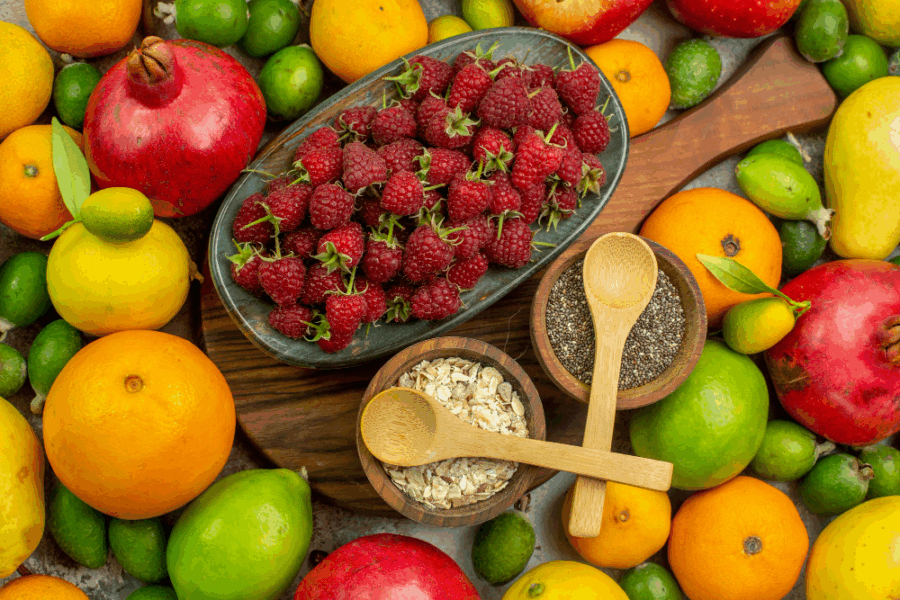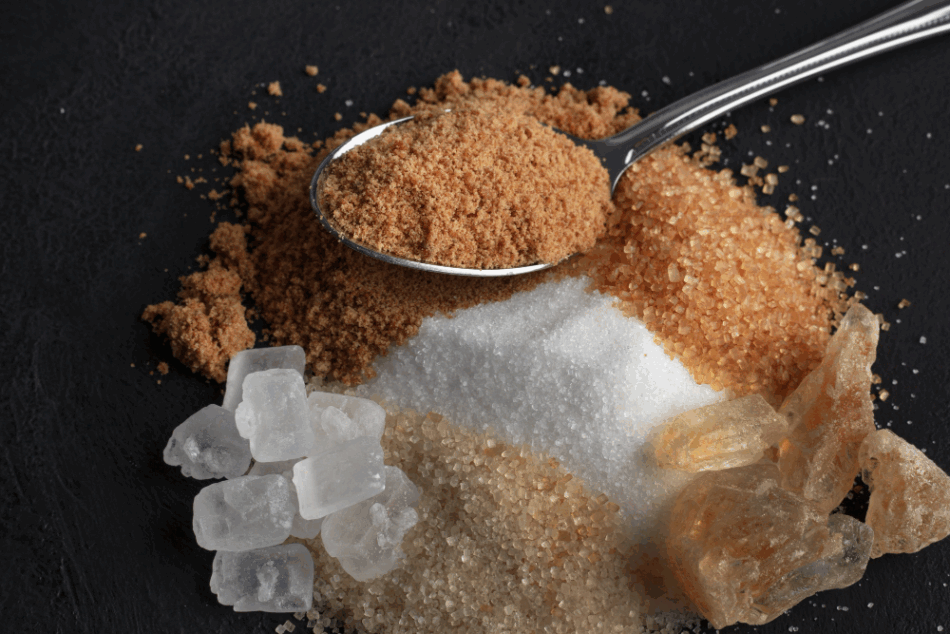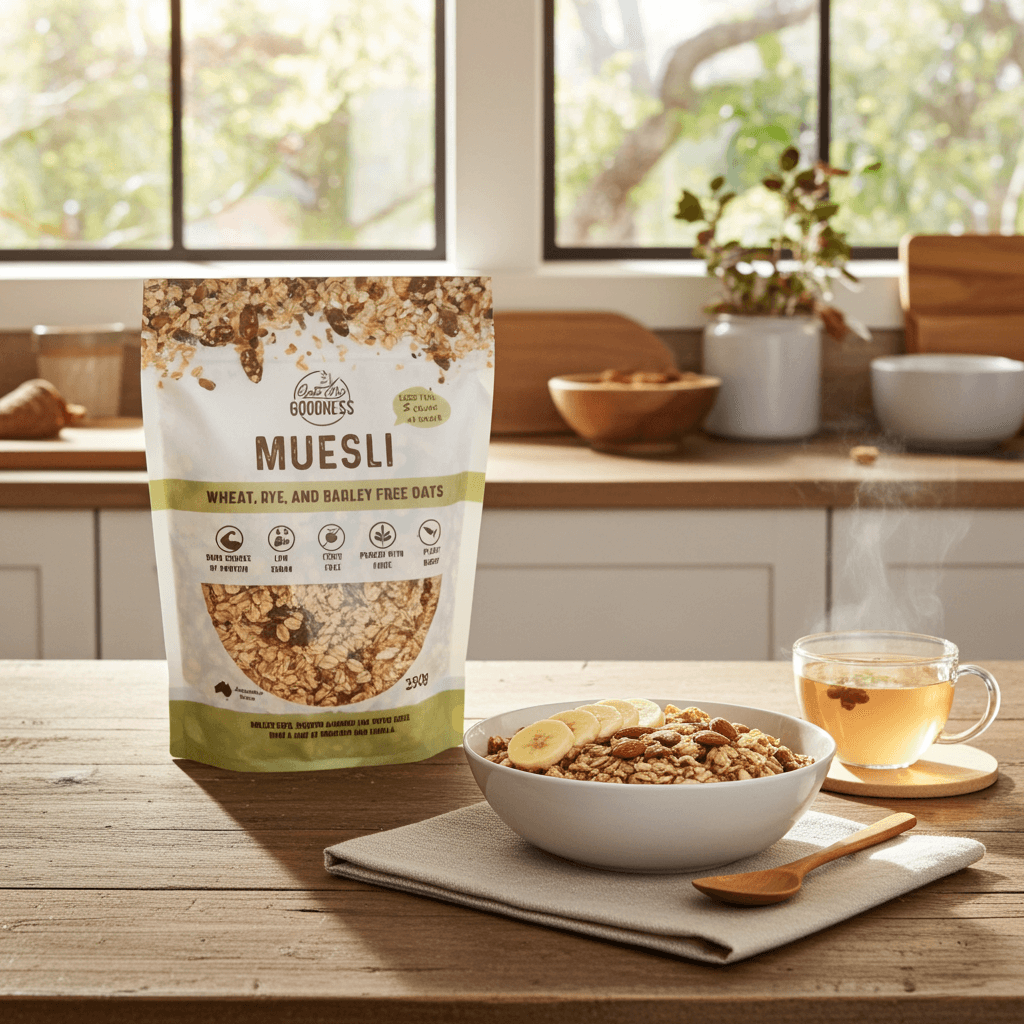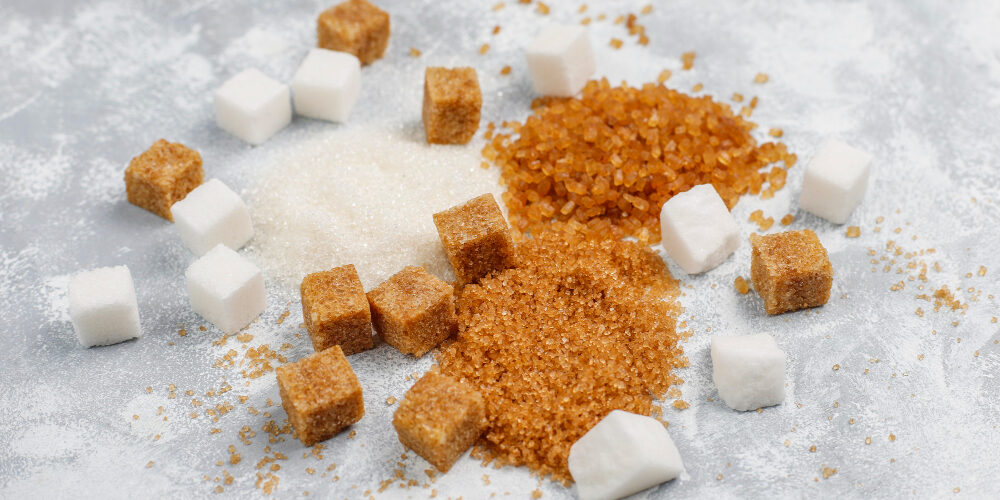When it comes to nutrition, the debate between refined sugar vs natural sugar is one that often sparks confusion. Both ingredients share many similarities, as they are types of sugar that give a sweet taste to foods or drinks. They can enhance the overall flavour and are essential for the body because they provide energy. However, they have significant differences in their manufacturing process and nutritional values. So, which one is better to consume?
What is natural sugar?

Natural sugar refers to the type of sugar that occurs naturally in whole foods, such as fruits, vegetables, and dairy products. It offers many nutritional benefits for your body, including vitamins, minerals, and a high fibre content, which is beneficial for your health. Consuming natural sugar is more recommended for the body than refined sugar because of its nutritional value. Even so, it would be better to consume both natural sugar and refined sugar in moderation.
What is refined sugar?

On the other hand, refined sugar is not found naturally in plant-based ingredients but is heavily processed to remove impurities, minerals, and fibre, leaving behind pure sucrose. Therefore, it is not advisable to consume it frequently or over a prolonged period. It would be better if you had other healthier options, such as natural sweeteners or refined sugar-free foods like Oats My Goodness. Because it’s stripped of nutrients, refined sugar offers “empty calories” that can lead to energy crashes and contribute to health issues such as weight gain, inflammation, and increased risk of chronic disease.
Refined Sugar vs Natural Sugar: Key Differences

The key differences between refined sugar and natural sugar lie in their sources, nutritional values, and impacts on the body. Consuming foods that are more natural and derived from plant-based ingredients can be considered clean ingredients and healthy for the body. Rather than having a negative impact on your body, consuming natural sugar can actually provide numerous benefits, including helping to regulate blood sugar levels and providing long-lasting energy. It can also help you feel less craving for sweet foods, making it ideal for supporting your diet. Conversely, consuming refined sugar, which is a processed ingredient, can lead to various diseases such as obesity and cancer.
How Your Body Responds to Sugar Consumption
When you consume natural sugars in fruits or oats, your body digests them gradually, releasing energy steadily while benefiting from fibre, vitamins, and minerals. In contrast, refined sugar floods your bloodstream, causing an insulin spike and a quick burst of energy, followed by a slump. Over time, frequent consumption of refined sugar can stress the pancreas and increase the risk of insulin resistance. The body treats both forms as sugar, but the nutritional context makes all the difference: natural sugar supports health, while refined sugar can undermine it.
Is natural sugar better for you than refined sugar?
Natural sugar offers the body numerous vitamins, minerals, and antioxidants, making it superior to refined sugar in terms of nutritional value. It makes natural sugar healthier for you than refined sugar. If you prefer sweeter foods, it’s best to use natural sugar instead of refined sugar to maintain your body’s health and a stable immune system.
Tips to Reduce Your Refined Sugar Intake

Watch Out for Hidden Refined Sugars
Refined sugar can be found in many hidden foods that you may not be aware of, so you need to check the ingredients in your daily meals more carefully. For example, adding barbecue sauce or ketchup to your meal can make it less healthy due to its refined sugar content. Therefore, by checking the label to identify foods that contain refined sugar, you can help avoid consuming excessive amounts of sugar.
Rid Your Pantry of Refined Sugars (Including Drinks!)
Knowing more about foods that contain refined sugar will significantly help you avoid consuming them and reduce your food portions. However, refined sugar is not only found in some foods, but also in some drinks. Drinks such as soft drinks, chocolate milk, flavoured coffee, and fruit juice with added sugar are some examples.
Although milk, coffee, and fruit juice are healthy drinks and have many beneficial nutrients for the body, they become less healthy when they contain refined sugar. But you don’t need to worry because you can still consume these drinks in moderation and not too often.
Focus on Creating Balanced Meals
Cutting refined sugar from your daily consumption is not easy because it gives food a richer and more enjoyable flavour. However, to keep your daily meals delicious and healthy, try to balance them with wholesome ingredients such as protein, fibre, or healthy fats that can help stabilise your blood sugar and reduce cravings for refined sugar. An example is combining yogurt, which contains refined sugar, with oats, which offer a significant amount of nutritional value for the body.
Opt for wholesome options like Oats My Goodness Granola and Overnight oats
If you’re confused about which sugar-free food options to choose, try wholesome options like Oats My Goodness Granola and Overnight Oats. You don’t need to worry about which food is better to consume between foods with refined sugar and natural sugar. With Oats My Goodness products, you can get a whole pack of nutritional value without any refined sugar!
With their low-calorie oats, they provide a third of your daily fibre intake and 20 grams of protein per serving, offering a nourishing meal without any unwanted additives, such as preservatives or seed oils. Even so, they still provide a variety of delightful flavours that bring you massive energy in the morning.
How do you read food labels to determine the amount of sugar?
To reduce your refined sugar consumption, always check the food labels to see the ingredients used. It is a vital step to find out whether your daily consumption contains healthy ingredients or not. Moreover, it can also help you identify which foods contain refined sugar. Be aware of alternative names for refined sugar, such as high-fructose corn syrup, glucose, or cane juice. These types of sugar have a negative impact on the body if consumed in excess.
Frequently Asked Questions
Which sugar is the healthiest?
The healthiest sugars are those found naturally in whole foods, such as fruit, vegetables, and minimally processed options like honey or dates. These deliver sweetness alongside fibre and nutrients.
Are natural sugars still bad for you?
When it comes to a debate about refined sugar vs natural sugar, they aren’t inherently “bad” when consumed in moderation. They become problematic only if eaten in excessive amounts. In reasonable portions, they provide energy and nutritional benefits.
What happens if you stop eating sugar for 30 days?
Eliminating refined sugar for 30 days can reduce cravings, improve energy stability, support weight management, and benefit heart and gut health. Many people also notice clearer skin and better sleep.
Conclusion
The refined sugar vs natural sugar debate isn’t about avoiding all sugar, but choosing wisely. Natural sugars, when enjoyed as part of whole foods, provide fibre, vitamins, and minerals that work in harmony with your body. Refined sugars, however, are stripped of goodness and can cause health problems when eaten in excess. By making small swaps, such as choosing Oats My Goodness overnight oats over sugary cereals, you can enjoy delicious meals while supporting your long-term health.
Ready to cut down on refined sugar without compromising flavour? Discover our full range of nourishing, plant-based oats and our bundle product at Oats My Goodness. Our products use natural sweeteners such as fruit or honey, keeping the meal clean and nourishing.







